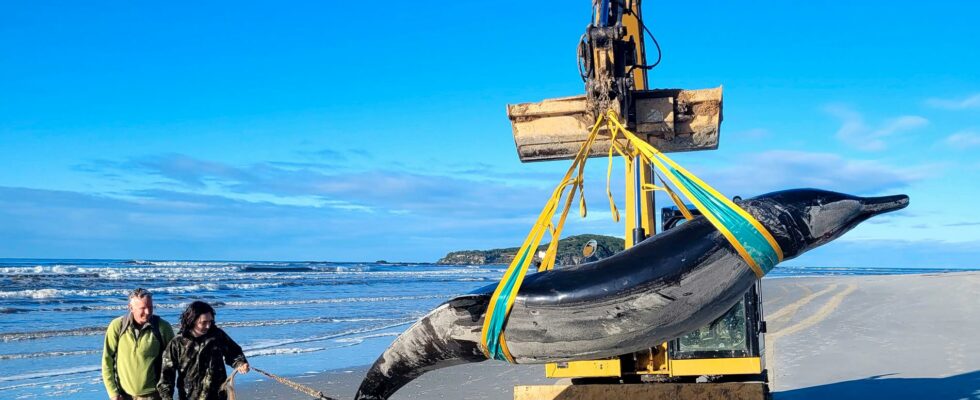unsaveSave
expand-left
full screen The dead whale is recovered from the beach in New Zealand. Photo: Department Of Conservation/AP/TT
It has never been sighted alive, no one knows how many there are, what they eat or how they live their lives in the Pacific Ocean. But now what is usually described as the world’s rarest whale may have washed ashore in New Zealand.
A five meter long creature, a type of beaked whale, has washed ashore on a beach near Otago in New Zealand. The dead animal is believed to be a mesoplodon traversii – a species that the International Union for Conservation of Nature IUCN categorizes as “insufficiently studied”.
Whales were identified by color patterns and the shape of their skull, beak and teeth.
– We know very little, practically nothing, about those creatures, says Hannah Hendriks, adviser at the New Zealand Animal Welfare Authority.
Not confirmed
It is not yet confirmed that it is actually a Mesoplodon traversii washed up on the beach. But if it is, it will be the first time that researchers will have the opportunity to dissect and thus learn more about the mammal.
– This will lead to incredible research and completely new information, says Hendriks.
Bones from the whale variety were first found in New Zealand in the 1870s, then in the 1950s, and in 1986 on a Chilean island. DNA confirmed in 2002 that the three specimens were from the same species and that they were distinct from other beaked whales. It was then uncertain whether the animal was extinct or not.
In 2010, two dead whales washed ashore in New Zealand. They were buried after being mistaken for another type of beaked whale and only after confirmed tissue samples was it clear that they were two specimens of mesoplodon traversii.
Also in 2017, a dead whale stranded on New Zealand, making a total of six documented specimens of the species ever to date.
To be tested
The whales, which have now been washed ashore, were quickly transported to a cold room, and researchers, together with local Maori groups, plan how the whales will be examined. DNA testing the carcass can take months.
For the indigenous people, whales are a taonga, a sacred symbol of cultural importance.
